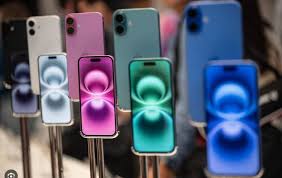Indonesia Maintains iPhone 16 Sales Ban Despite Apple’s $1 Billion Investment Commitment
Indonesia has upheld its ban on the sale of the iPhone 16, despite Apple’s recent pledge to invest $1 billion in the country. The ban, which was enforced in October, stemmed from Apple’s failure to meet the Indonesian government’s domestic market requirements, specifically the regulation demanding that 40 percent of a smartphone’s components be locally sourced.


Indonesia has upheld its ban on the sale of the iPhone 16, despite Apple’s recent pledge to invest $1 billion in the country. The ban, which was enforced in October, stemmed from Apple’s failure to meet the Indonesian government’s domestic market requirements, specifically the regulation demanding that 40 percent of a smartphone’s components be locally sourced.
Investment Minister Rosan Roeslani confirmed to reporters on Tuesday that Apple remains committed to investing the substantial sum to build an AirTag factory on Batam Island, which is expected to supply 65 percent of the global AirTag demand. However, the details regarding the deal, especially whether the agreement has been signed for the factory’s establishment, remain unclear.
While Apple’s investment is seen as a significant commitment to Indonesia, Industry Minister Agus Gumiwang Kartasasmita explained that the AirTag is classified as an accessory and not a component for devices such as the iPhone, meaning it does not satisfy the local component requirements for the iPhone 16 model.
“The ministry doesn’t have any reason to issue the domestic component level certificate for Apple products, especially iPhone 16,” Kartasasmita stated during a press briefing on Wednesday. He also mentioned that Indonesian officials met with Apple representatives on Tuesday, but no agreement had been reached. A counterproposal was extended to Apple, but the company has yet to respond.
Previously, Apple had offered an additional $100 million in investments to lift the sales ban on the iPhone 16, but the Indonesian government rejected the offer in November, maintaining the position that the company must comply with local manufacturing requirements.
Despite the sales ban, Apple’s latest model can still be brought into Indonesia as personal imports, as long as they are not sold commercially. Indonesian authorities estimate that around 9,000 units of the iPhone 16 have entered the country this way.
This move follows similar actions by Indonesia, which also prohibited the sale of Google Pixel phones for failing to meet the 40 percent local parts rule. However, despite the ban, about 22,000 units of the Google Pixel entered Indonesia last year.
The situation has raised concerns about the country’s strict regulations on foreign companies and the potential impact on business operations in Indonesia. Apple’s ongoing negotiations with the government will determine the future of the iPhone 16’s availability in the Indonesian market.
Sources By Agencies







